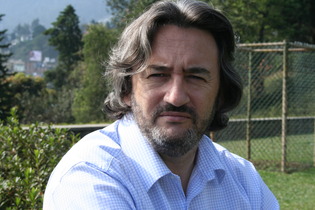13 Aug 2012 | Americas, Mexico
Mexican investigative journalist Lydia Cacho has fled the country after receiving death threats.
Cacho, a columnist for the daily Mexico City-based El Universal, tweeted on 4 August that “mafiosi are the ones that should be running, not us,” a week after telling Mexican authorities that she had received anonymous death threats via phone and e-mail for revealing the names of sex traffickers. (more…)
13 Aug 2012 | Egypt, Middle East and North Africa
The month-long suspension of a privately-owned Egyptian TV channel for “defamation and incitement to violence” has triggered an outcry in Egyptian media circles amid fears of regression in freedom of expression gained after the country’s January 2011 revolution. (more…)
12 Aug 2012 | Asia and Pacific, News
 In 2007, Fergal Keane reported for Index on the near impossibility of working as a reporter in Burma. Returning in 2012, he found much had changed. But though the military is slowly loosening its grip, restrictions remain
In 2007, Fergal Keane reported for Index on the near impossibility of working as a reporter in Burma. Returning in 2012, he found much had changed. But though the military is slowly loosening its grip, restrictions remain
(more…)
9 Aug 2012 | Europe and Central Asia, Index Index, minipost
Two Italian journalists have been sentenced to four months in prison and fined 15,000 Euros (11,700 GBP) for libel. Orfeo Donatini and Tiziano Marson, of newspaper Alto Adige, were convicted in June of alleging in a 2008 article that local politician Sven Knoll had taken part in a neo-Nazi summit. The claim was based on a police report and appeared in weekly magazine L’Espresso. Knoll lodged a criminal defamation complaint, and although the journalists were acquitted, the case was reviewed by the court of cassation and referred back to the Bolzano city tribunal. In a statement, press freedom organisation Article 19 said criminal defamation provisions in Italy’s Penal Code were “incompatible” with international standards of freedom of expression.

